- Home
- David Lubar
Teeny Weenies: The Boy Who Cried Wool Page 2
Teeny Weenies: The Boy Who Cried Wool Read online
Page 2
“Oops,” Peter said. “Too late.”
“No big deal,” I said. I had plenty of socks.
Peter got this funny look on his face. Then he screamed and started yanking at his socks. They seemed to fall apart in his hands. Then I screamed when I realized they weren’t falling apart. They were turning into spiders. Dozens of them.
Cindy screamed, too. But not just because of the spiders. A tiny bat was frantically flapping its wings between her foot and her sneaker. She yanked the sneaker off. The bat flew out of the room.
I stared at my socks. There was no way they’d turn into vampires. I was relieved to see they weren’t changing shape. And even if they did, they’d be small.
My relief vanished when I felt sharp stings in both feet, like someone was biting me. Red dots appeared by the fangs. I tried to look away, but the vampire’s eyes locked onto me. I watched as the dots grew as large as pennies and then quarters. Finally, the red blotches reached the hypnotic eyes and covered them.
“Get them off!” I yelled as I tore my gaze away from the vampire’s. The room started to spin. I was feeling faint. I tried to reach for my socks, but I couldn’t seem to make my hands do what I wanted. I flopped down on my back.
“Help…,” I said. My voice was just a whisper now.
Peter and Cindy dived on my feet and ripped off the socks. I barely managed to keep from passing out.
Peter grabbed an empty can that had held potato chips and shoved the socks in there, then slapped the lid back on. They helped me to my feet. I looked down and saw fang marks.
“Do you think I’ll turn into a vampire?” I asked.
“You’re more likely to turn into a sock,” Peter said.
I was going to tell him that wasn’t funny. But I realized it was. By then, all of the spiders had scurried away. We went downstairs and opened the door so the bat could fly out. Then Peter opened the can and tossed the socks in the fireplace, where my parents had a roaring fire going.
I was pretty nervous that night when I went to sleep. I was afraid I’d wake up as a vampire. But I didn’t. So I guess it all could have been a lot worse. Whenever I look back, I think about all the other things I could have drawn—snakes, alligators, Tyrannosaurus rex—and I shudder a bit.
I also make sure I always read the back of any package before I open it.
LEAVE IT BE
Edwin stepped out on his front porch and felt the cool breeze that marked the change of seasons. It was the first day of autumn, Edwin’s favorite season. The leaves on the maple tree next to the porch were already starting to turn colors. Soon, Edwin knew he’d be kicking through piles of leaves. Soon after that, he’d get to go out for Halloween, and after that, he’d stuff himself with turkey, gravy, and mashed potatoes. Sure, summer was great for swimming and baseball, but he’d had enough bright sunshine and double plays for now. He was ready for corn mazes and caramel apples.
“Fall!” Edwin shouted, loving even the sound of that word.
A rustling like a thousand startled birds filled the air. Leaves fell. Every leaf on the sugar maple next to the porch turned to shades of red, yellow, or orange and then let loose from the branches. The leaves fluttered to the ground.
Edwin stared at the bare limbs of the maple tree and at the colorful carpet on the lawn. Did I do that? he wondered. He stepped down from the porch and walked to the next nearest tree, a large oak on the corner of the front yard.
“Fall!” Edwin shouted.
The oak leaves turned color and fell. Edwin dashed under the tree and spun around in the shower of leaves, flinging his arms wide and laughing.
When the rain of leaves ended, Edwin ran into the neighbor’s yard, where three birch trees surrounded a large rock. Edwin climbed up on the rock, at the center of a triangle formed by the trees.
“Fall!” he shouted.
Leaves fell from all three trees, showering Edwin in another magical moment.
He hopped off the rock and dashed for the next house.
“What are you doing?”
The shout came from behind him. Edwin looked over his shoulder. His sister, Irene, was chasing after him.
“I’m making fall,” he said. “Watch.” He slid to a stop by a tree at the curb. “Fall!”
Leaves fell.
“Maybe you shouldn’t do that,” Irene said.
“It’s fun,” Edwin said. He ran to the next tree.
“It’s not natural,” Irene said.
“You’re just mad because I can do it,” Edwin said. He made his way around the block, dropping the leaves from every single tree. Finally, he reached the very last untouched tree on the block. He stood right under it, staring up at all the leaves that would soon cascade down on him like confetti at a parade.
“Don’t do it,” Irene said.
Edwin did it.
“Fall!” he shouted.
The leaves fell. In a moment, the tree stood bare like every other tree on the block.
The sun seemed to grow dimmer. Clouds filled the sky. The air changed from cool to chilly, and then from chilly to bitter cold.
Edwin shivered.
Instead of leaves, something else fell.
Snow.
Flurries of cold, white flakes filled the air. Fall was over. It had come and gone in less than a day, thanks to Edwin.
It was winter now.
Irene loved winter. She loved it even more than Edwin loved fall. She wanted to shout, “Snow!” But she knew enough not to say anything. She wanted to enjoy winter one day at a time.
ESTHER’S SENTENCE
It was a sunny Saturday morning. But it felt just like every other sunny Saturday morning. Esther woke up in the same bed in the same room in the same house under the same sun as always.
I need to do something different today, Esther thought as she got ready to go eat the same Saturday breakfast she always ate.
She thought about putting her clothes on backward. That would be different, but mostly it would just be silly. She thought about walking to the Amazon River and fishing for giant catfish. That would be different, but she wasn’t allowed to cross the street by herself. She thought about learning to speak French. That would be different, but she was pretty sure it would take more than one morning to learn the whole language. Esther realized that whatever she did, she’d better do it in a language she already knew.
“I’ve got it!” Esther said as the idea hit her. “I’ll say something that has never ever been said before.”
Esther stood on her bed, puffed out her chest, and said, “The ant dragged the piano to the carpenter.” It sure sounded like something no one had ever said. Just to be sure, Esther added a few more words: “The purple ant dragged the soft piano to the grumpy carpenter.”
Esther figured that the sentence would want to be heard. If she were words, she knew she’d want to be heard. She ran downstairs to the kitchen and told her mother, “The purple ant dragged the soft piano to the grumpy carpenter.”
But her mother was on the telephone, and the sentence just went in one ear and out the other. That wasn’t an easy trip.
“I’m sorry,” Esther said to the sentence after it had wriggled its way free. “But don’t worry—I’ll take care of you. You have my word.”
Esther rushed to the living room, where her brother was watching television. She caught her breath, then said, “The purple ant dragged the soft piano to the grumpy carpenter.”
But her brother was so fascinated with his program that talking to him was like talking to a brick wall. The collision hurt the little string of words. First, it went in one ear and out the other; now, it had bounced off a brick wall.
“Maybe we should go outside,” Esther said to the sentence as it landed with a clatter at her feet. She walked out the door. The sentence, which couldn’t say anything other than what it was already saying, mumbled along next to her.
Esther ran up to her big sister, who was washing the car in the driveway, and told her, “The purple ant
dragged the soft piano to the grumpy carpenter.”
But her sister was using the hose to spray the hubcaps, and the water made such a roar that Esther’s sentence was lost in all the noise.
“Oh no,” Esther said as she hunted for her sentence. Finally, she spotted it in a puddle of soapy water. She picked it up and dried it off on her shirt, then put it back on the ground.
As Esther walked toward the front lawn, she heard familiar footsteps. She saw the mailman coming up the street. Surely someone who delivered letters would appreciate the sentence.
Esther dashed over to him and said, “The purple ant dragged the soft piano to the grumpy carpenter.” The mailman heard the words, but he had other thoughts in his head, and he pushed the sentence from his mind.
Ouch! The poor sentence had gone in one ear and out the other, bounced off a brick wall, gotten lost, and then been pushed. It plopped to the ground and whimpered along behind Esther, trying not to fall apart.
Esther was almost sorry that she had ever said the sentence. But it was in such a poor condition that she didn’t dare let it know how she felt. The words seemed to be losing their shape and meaning. The word purple was fading to a pale gray, and soft was turning into mush.
Poor sentence, Esther thought, wondering if she would have to send it out on its own. Then she saw Mrs. Severance, her next-door neighbor, standing on her porch. Esther rushed up to her and started to say, “The purple ant dragged the soft—”
“I can’t listen to you right now, Esther; I have important things to do,” she said, breaking Esther off in the middle of the sentence. This was the worst of all. After going in one ear and out the other, bouncing off a brick wall, getting lost, and being pushed, the poor sentence had been broken.
Esther gathered the pieces and carried them to her room. She put the shattered sentence on her bed. She hoped it would pull itself together, but it just lay there without making any attempt to express itself. Bruised and broken and hurt and shivering, the sentence was ready to disappear.
“Don’t give up,” Esther said. “I have an idea.”
Her grandmother had given her a fountain pen. This was the old-fashioned type of pen that used ink from a bottle. Esther took the pen from the desk and carefully sucked up the sentence. Then she wrote it down, without that painful break, on a page in her notebook. The words flowed smoothly onto the paper. In a minute, the ink was dry and the sentence was safe.
“There,” Esther told it, “no one is ever going to bounce or bruise or lose or break or push you again.”
She closed the notebook, keeping the sentence snug and secure. She didn’t tell it, but she had a surprise planned for Sunday morning. When the sentence was all rested from its adventures and feeling well again, Esther was going to write another sentence to keep it company. And that new sentence just might be one that had never ever been written before.
THE HORN OF PLENTY
Linda saw the horn in a garbage can at the
curb, five blocks from her house. It was lying there, glittering, half-hidden among orange peels, coffee grounds, and other things best left unidentified.
“You’re throwing that out?” she asked the woman who had just rolled the can to the curb.
“I don’t need it anymore,” the woman said. “My children are grown. I don’t know anyone else who would want it.”
“What is it?” Linda asked.
“A cornucopia,” the woman said, “or a horn of plenty. It produces endless good things. We used to put it on the table every Thanksgiving, when my children were young and living at home.”
“Endless good things? I’d want that! Can I have it?” Linda asked. Even half-buried by trash, the horn was lovely. It looked like a ram’s horn, with a big opening at the end. And if it produced good things, all the better.
“You shouldn’t pick through garbage,” the woman said. She stood there, with no expression on her face, waiting for Linda to move on.
Linda did move on. But she crept back as soon as it got dark and snatched the horn from the garbage can. She’d even thought to wear a pair of the rubber gloves her parents used when they had to clean the drain in the bathroom sink or touch other icky things.
The next morning, she cleaned the horn. It gleamed. Linda hadn’t totally believed the horn would produce good things. Not back when the woman had first told her. But now, looking at it, and seeing the way it shimmered, she was sure it was magic. Better yet, tomorrow was Thanksgiving. She’d put the horn on the table and see what happened.
Her parents stared at her for a moment the next afternoon when she brought the horn from her room. But they let her put it on the table.
Nothing came out at first. But when Linda was about to enjoy her second helping of turkey and gravy, a strange sound caught her attention. The horn buzzed, like it was warming up and getting ready to stream out a series of surprises.
“Watch this,” she told her parents.
The buzzing grew louder.
She pointed at the horn. “You’ll be amazed.”
Her parents leaned forward.
The horn buzzed so hard, it started to vibrate.
“Any second now…,” Linda said.
A fly came out.
And then another.
And then a hundred more.
“Get that thing out of here!” her dad screamed.
Linda grabbed the horn and ran from the house. She tried to throw the horn away. The thin end wrapped around her wrist like a handcuff. She couldn’t break free. More flies streamed out. They swarmed around her. Linda raced down the street. Something told her that she had to bring it back to where she’d gotten it.
She reached the house. The can was gone. She went to the porch and banged on the door.
When the woman answered, Linda shoved the horn at her. “Here! Take it! You told me good things would come out. You lied!”
The horn released its grip on her.
“They are good,” the woman said as the swarm of flies grew even thicker. “My children love them. And my children came for a surprise visit. So I guess I can use this again.” She plucked the horn from Linda, then turned away and called, “Come here, my children.”
Past her, Linda saw dozens of dark shapes emerging from another room. They scurried and scuttled on eight legs. The woman thrust more arms through slits in her dress. She had eight arms, too. Or legs. Her eyes grew larger. Hairs sprouted on her limbs. She opened her mouth and inhaled flies. Her children, large spiders, joined her on the porch. They feasted on the flies.
Linda ran.
The spiders ran faster.
In the end, Linda had nothing to be thankful for.
TRICK AND TREAT
Halloween was always one of the best
days of the year—unless it was also moving day. Micah, who loved Halloween, arrived in his new town at 4:30 in the afternoon. He was afraid the best night of the year was going to be ruined. He didn’t even have a clue what route to take.
“I don’t know anybody,” he told his mom as she unpacked a box of books. “I’ll have to go out by myself.”
“I’m sure you’ll make friends,” she said.
“Not in time for Halloween,” Micah said. He opened the front door and looked up and down the street. “I don’t even see any kids. Wait! There’s something else I don’t see, either.”
Micah ran outside, hoping he was wrong. He dashed to one end of the block and then to the other. “Nothing!” he said. There wasn’t a single pumpkin, skeleton, or vampire in sight. No decorations on doors. No tombstones on lawns. No skeletons dangling from trees.
“I don’t think they celebrate Halloween here,” he told his dad, who was putting dishes away in a cabinet.
“Of course they do,” his dad said.
As the skies grew dark and the air filled with an autumn chill, Micah realized he had another problem. He didn’t have his costume.
“Where’s my monster mask?” he asked his parents.
“It’s somewhe
re,” his dad said, pointing to the zillions of boxes stacked against the living room wall.
“You’ll find it,” his mom said.
Micah tried. The night got darker. He got desperate. He had a pair of plastic vampire teeth his best friend had given him for his birthday. He slipped them in his mouth, grabbed a black towel from the bathroom to use as a cape, found a plastic bag for the candy he hoped he’d collect, and said, “I’m going out.”
“Have fun,” his parents said.
Micah went to the sidewalk and looked around. There was nobody in sight. “This isn’t Halloween,” he said. Halloween was when the whole neighborhood was filled with kids in costumes. It was like having a hundred small parades going on in all directions at once.
He went to the house next door and knocked.
A man answered. “Yes?”
Micah looked past him. He didn’t see a bowl of candy. “Trick or treat,” he said.
“Sure,” the man said. “Wait right here.” He dashed off, leaving Micah feeling just slightly more hopeful.
The man came back holding a deck of cards. He fanned them out and thrust them toward Micah. “Here. Pick a card. Any card.”
“What?” Micah asked.
“You wanted a trick, right?” the man said.
“No!” Micah said. “I want a treat. Or you’ll get tricked.”
“Oh, I get it,” the man said. He straightened up the deck and offered it to Micah. “Here. I love tricks. Show me one.”
Micah let out a cry of frustration and walked away. “Trick or treat,” he said at the next house.
“I’ll take a treat,” the woman said. “What do you have?”
Puzzled, frustrated, and sad, Micah slinked away from that house, too. And the next one. And the one after that. Nobody seemed to have a clue what day it was. Nobody seemed to understand the simple idea that they were supposed to give him candy. When he reached the end of the block and faced the last house, he told himself he was just about ready to quit. This would be the last one. If nobody there understood Halloween, he’d just have to give up.

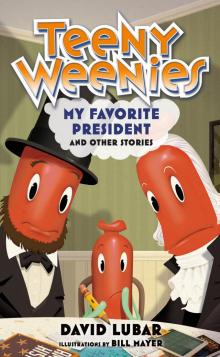 Teeny Weenies: My Favorite President
Teeny Weenies: My Favorite President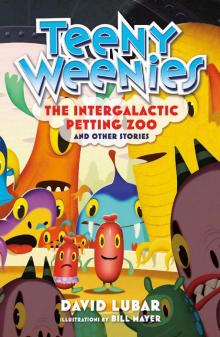 Teeny Weenies: The Intergalactic Petting Zoo
Teeny Weenies: The Intergalactic Petting Zoo Teeny Weenies: The Eighth Octopus
Teeny Weenies: The Eighth Octopus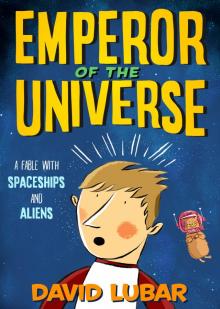 Emperor of the Universe
Emperor of the Universe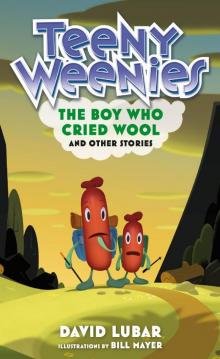 Teeny Weenies: The Boy Who Cried Wool
Teeny Weenies: The Boy Who Cried Wool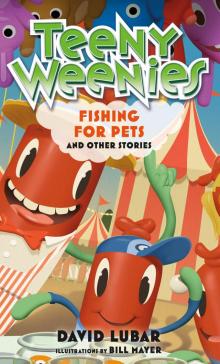 Teeny Weenies: Fishing for Pets
Teeny Weenies: Fishing for Pets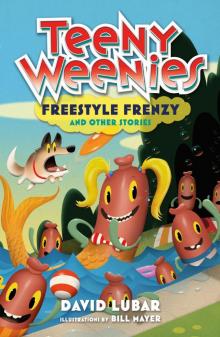 Teeny Weenies: Freestyle Frenzy
Teeny Weenies: Freestyle Frenzy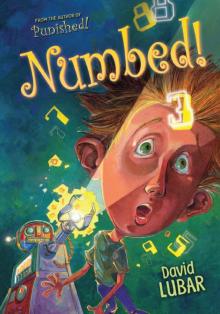 Numbed!
Numbed!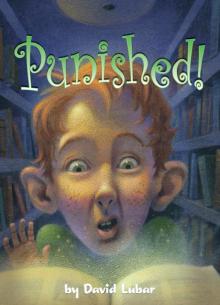 Punished!
Punished!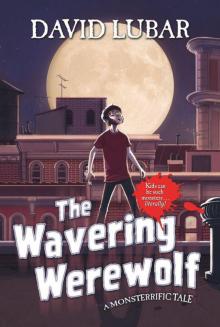 The Wavering Werewolf: A Monsterrific Tale (Monsterrific Tales)
The Wavering Werewolf: A Monsterrific Tale (Monsterrific Tales)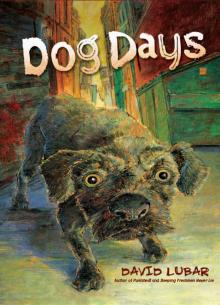 Dog Days
Dog Days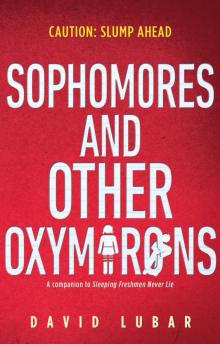 Sophomores and Other Oxymorons
Sophomores and Other Oxymorons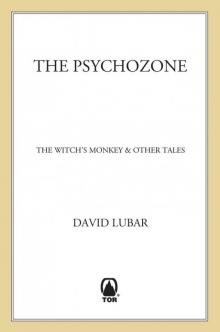 The Psychozone
The Psychozone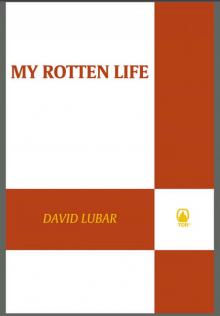 My Rotten Life
My Rotten Life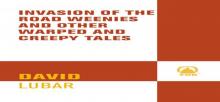 Invasion of the Road Weenies
Invasion of the Road Weenies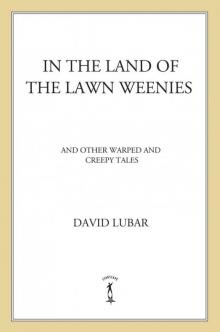 In the Land of the Lawn Weenies
In the Land of the Lawn Weenies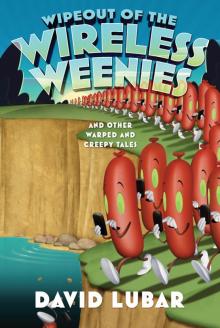 Wipeout of the Wireless Weenies
Wipeout of the Wireless Weenies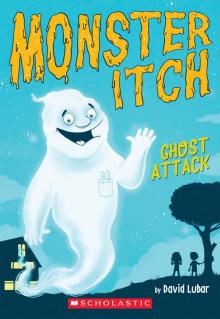 Ghost Attack
Ghost Attack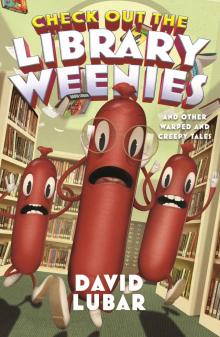 Check Out the Library Weenies
Check Out the Library Weenies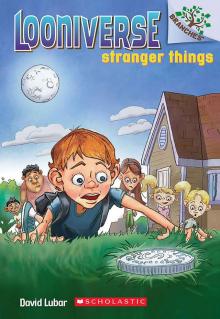 Looniverse #1: Stranger Things (A Branches Book)
Looniverse #1: Stranger Things (A Branches Book)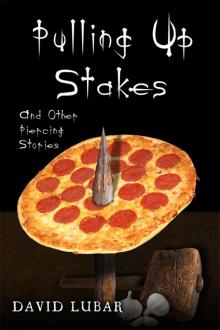 Pulling up Stakes and Other Piercing Stories
Pulling up Stakes and Other Piercing Stories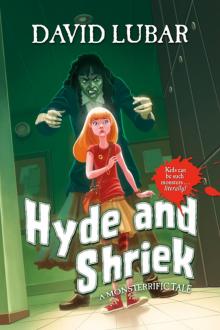 Hyde and Shriek
Hyde and Shriek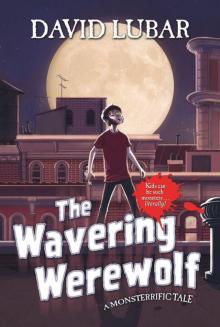 The Wavering Werewolf
The Wavering Werewolf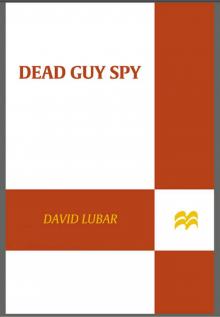 Dead Guy Spy
Dead Guy Spy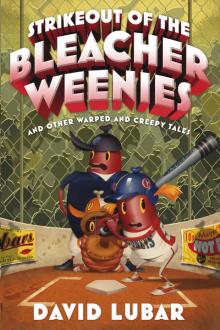 Strikeout of the Bleacher Weenies
Strikeout of the Bleacher Weenies The Big Stink
The Big Stink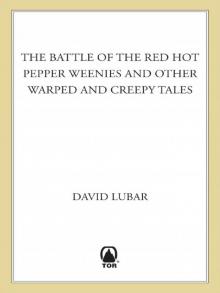 The Battle of the Red Hot Pepper Weenies
The Battle of the Red Hot Pepper Weenies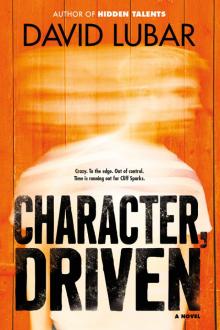 Character, Driven
Character, Driven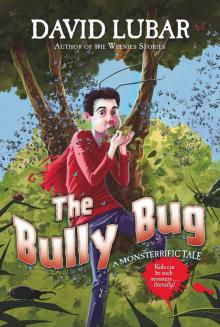 The Bully Bug
The Bully Bug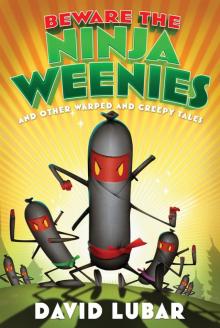 Beware the Ninja Weenies
Beware the Ninja Weenies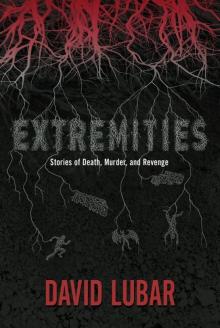 Extremities: Stories of Death, Murder, and Revenge
Extremities: Stories of Death, Murder, and Revenge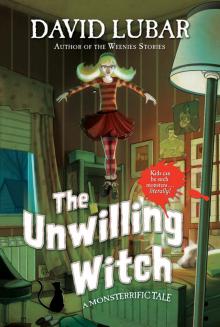 The Unwilling Witch
The Unwilling Witch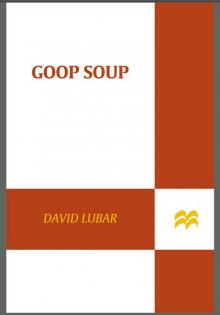 Goop Soup
Goop Soup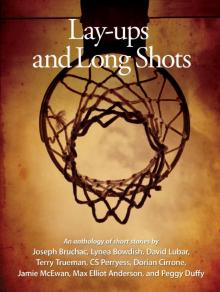 Lay-ups and Long Shots
Lay-ups and Long Shots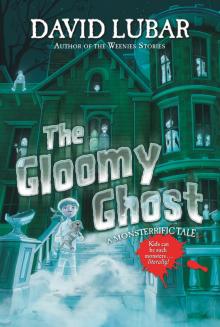 The Gloomy Ghost
The Gloomy Ghost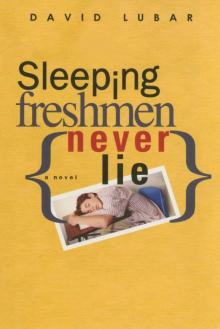 Sleeping Freshmen Never Lie
Sleeping Freshmen Never Lie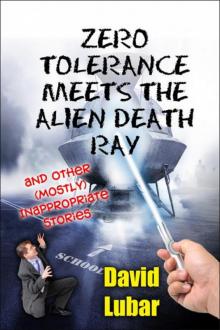 Zero Tolerance Meets the Alien Death Ray and Other (Mostly) Inappropriate Stories
Zero Tolerance Meets the Alien Death Ray and Other (Mostly) Inappropriate Stories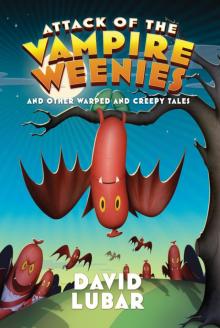 Attack of the Vampire Weenies
Attack of the Vampire Weenies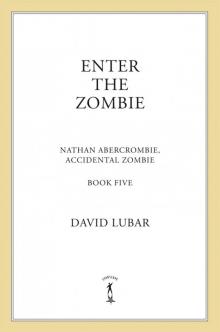 Enter the Zombie
Enter the Zombie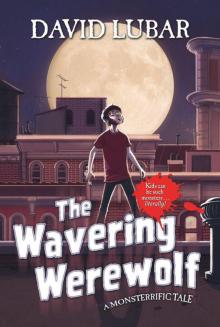 The Wavering Werewolf_A Monsterrific Tale
The Wavering Werewolf_A Monsterrific Tale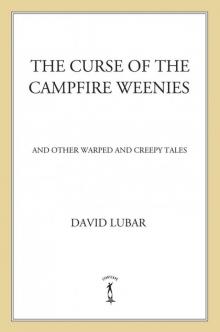 The Curse of the Campfire Weenies
The Curse of the Campfire Weenies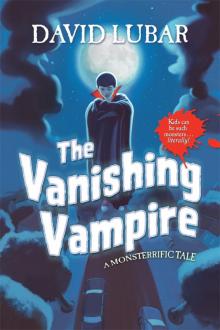 The Vanishing Vampire
The Vanishing Vampire